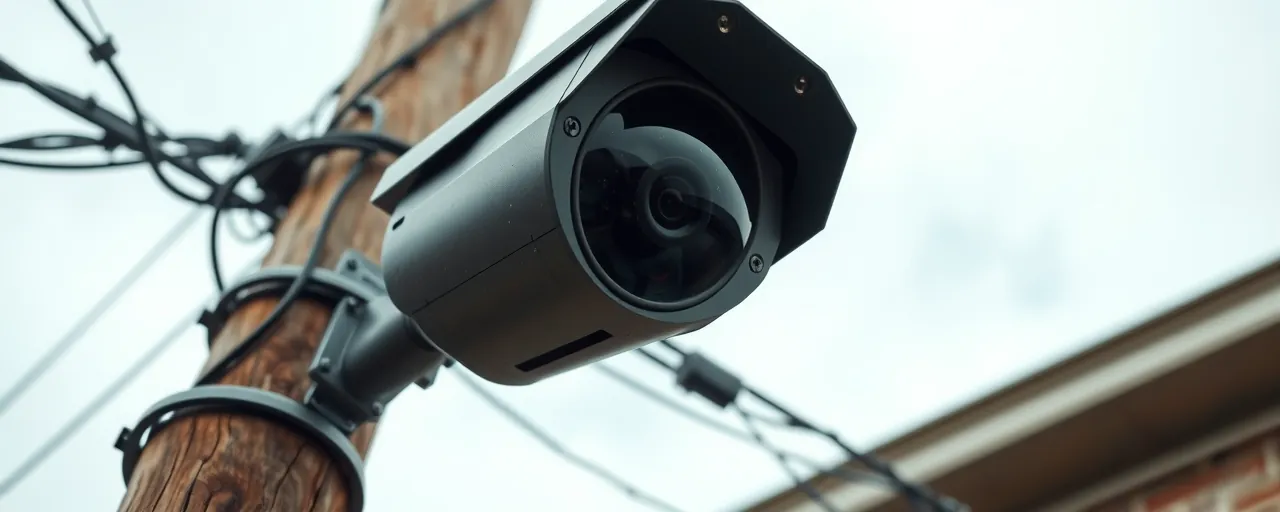A Town’s Surveillance Reboot
Houlton, Maine, a close-knit community of just over 6,000, is bringing its surveillance cameras back online. The town council’s decision in May 2025 to restart the 50-camera network, first launched in March 2024 with federal funds, has stirred a lively local debate. At its core, the conversation weighs the promise of safer streets against the fear of eroded privacy, a tension felt far beyond this rural corner of New England.
The system, featuring facial recognition capabilities, hit a roadblock in February 2025. Residents flagged potential conflicts with Maine’s 2021 biometric privacy law, which tightly regulates such technology. A steep $7,000 annual cloud-storage fee also sparked pushback, halting the program. Now, armed with a more affordable $3,300-per-year licensing agreement and a detailed camera policy, Houlton is testing whether it can satisfy both safety advocates and privacy defenders.
Why Cameras? The Safety Argument
Town officials and law enforcement champion the cameras as a vital tool for Houlton’s safety. Research supports their case to some degree: a comprehensive review of 93 studies shows CCTV can cut crime by up to 51% in parking lots and 23% in transit areas, though city centers see a smaller 7% drop. Places like Baltimore, which reported 30 fewer monthly incidents after installing cameras, illustrate the potential impact.
In Houlton, where minor crimes like theft and vandalism top the list of concerns, cameras could discourage would-be offenders. A UNC Charlotte survey of convicted burglars found visible cameras to be the strongest deterrent. Local leaders also highlight the system’s real-time monitoring, which could hasten police response in crises. They argue that the new policy’s data retention limits and oversight measures address privacy concerns while prioritizing community well-being.
Privacy Fears in the Spotlight
Not everyone in Houlton is convinced. Many residents, alongside groups like the ACLU, worry that the cameras threaten civil liberties. Maine’s biometric privacy law sets strict rules on facial recognition, and critics fear the system could slide into broader surveillance without rigorous checks. They point to urban examples where cameras have disproportionately affected marginalized groups, raising questions about fairness.
Cost is another sticking point. Even with the reduced $3,300 annual fee, some argue the money would be better spent on community policing or infrastructure. This debate echoes a long history of unease with surveillance, from 1960s CCTV in London to post-9/11 security expansions. In Houlton, the question is whether a small town can wield advanced technology without undermining the trust that defines its character.
A Global Trend, a Local Lens
Houlton’s experience mirrors a worldwide surge in surveillance technology. The global camera market, worth $43.6 billion in 2025, is expanding with AI-driven analytics and cloud systems. Cities are weaving cameras into ‘smart city’ frameworks, often alongside tools like gunshot detection. At the same time, privacy protections are tightening, with the EU’s proposed AI Act and new U.S. state laws pushing for transparency and data safeguards.
History offers context for this balancing act. From nineteenth-century police patrols to post-9/11 data sweeps, each leap in security has met resistance. Houlton’s federally funded cameras reflect a recurring challenge for small towns: embracing innovation while preserving community values. The town’s public hearings and policy revisions suggest a commitment to finding common ground, potentially setting an example for others.
Houlton’s Path Forward
As Houlton reactivates its cameras, the town faces a complex task. The updated policy, with its data limits and oversight protocols, seeks to comply with Maine’s privacy laws. Officials hope clear communication will rebuild trust, but doubts linger among residents. The system’s success will depend on delivering measurable safety gains without crossing legal or ethical lines.
This debate is hardly unique to Houlton. Communities nationwide are wrestling with how to integrate surveillance into public life while respecting privacy. Houlton’s small scale offers a unique angle, where local relationships and accountability could tip the scales toward resolution.
For now, the cameras are watching Houlton’s streets once more. Whether they strengthen the town’s safety or spark further contention rests on how well leaders listen and follow through. The outcome could ripple beyond Houlton, offering lessons for any community navigating the intersection of technology and trust.
